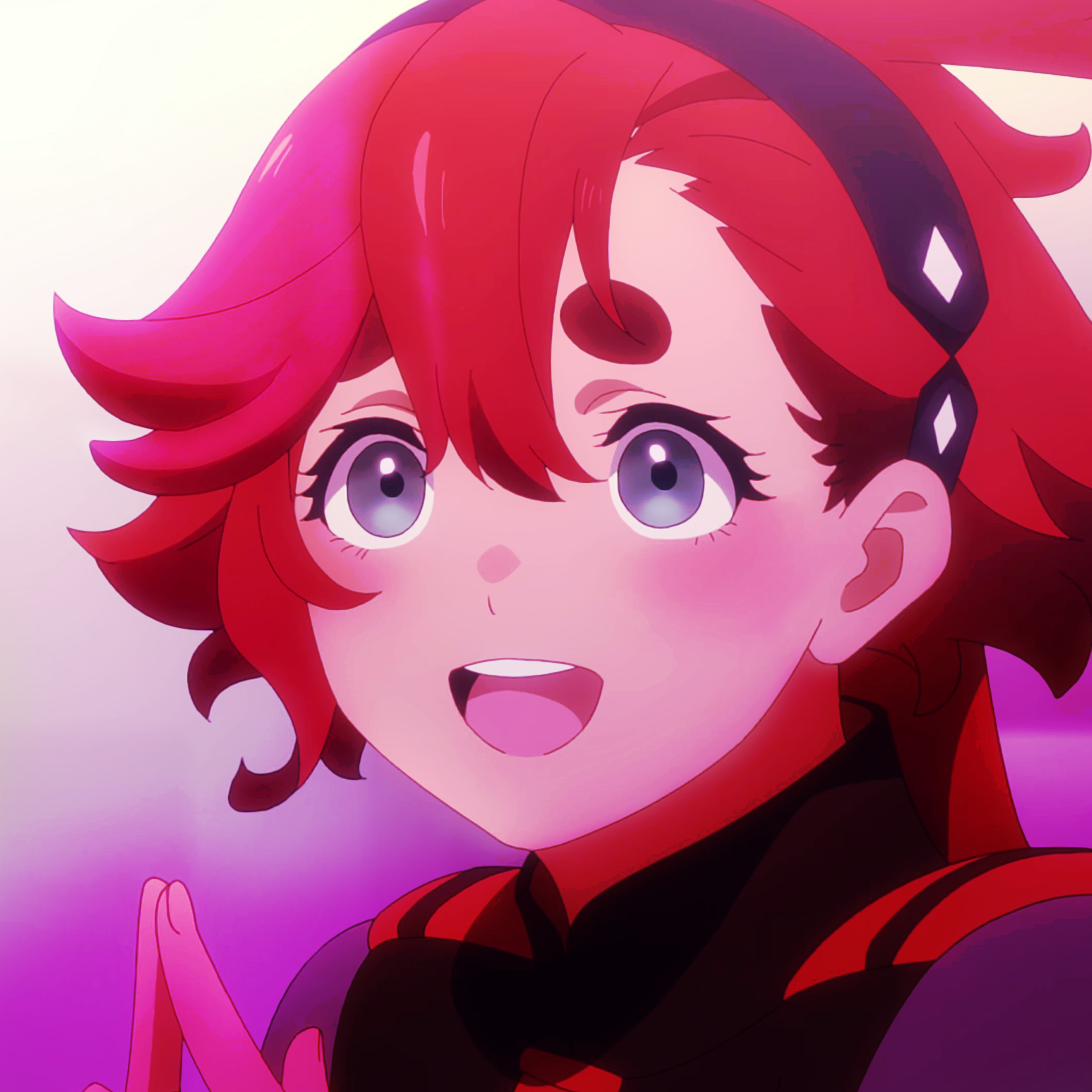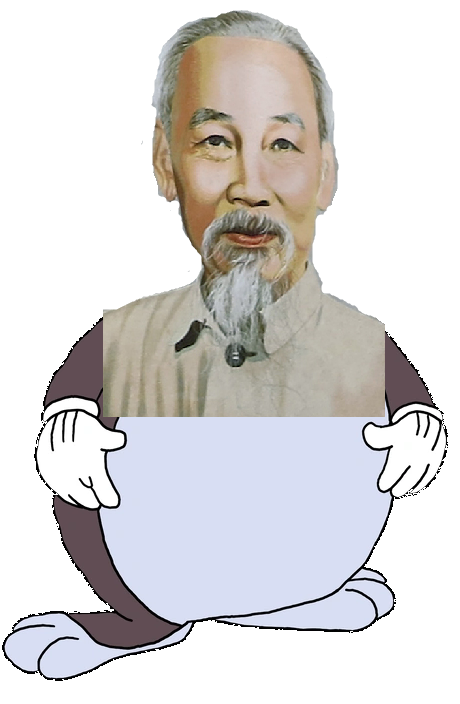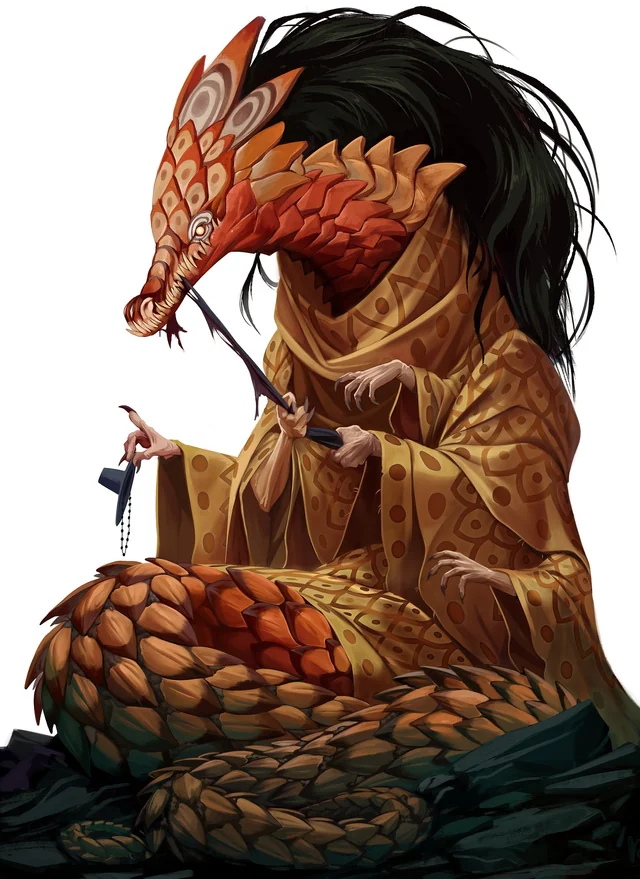I keep seeing posts from this instance referring to capitalists as liberals. Since when are capitalism and liberalism related? As far as I've always known, liberalism is a social ideology, while capitalism is an economic system.
Why do y'all refer to all capitalists as liberals when at least half (probably more, at least in my experience) are conservatives?
I, for example, consider myself a liberal, but I'm most certainly not a capitalist. I'm stuck in a capitalist society in which I have to play by the rules if I want to feed my family, but that's as far as my support for the system goes. I'm pretty sure a lot of Americans feel this way.
Looking it up, the definition of liberalism specifies a belief in maximum personal freedom, especially as guaranteed by a government. Considering that 90% of governments in the world are endlessly corrupt, capitalist or not, I'd much prefer one that guarantees its citizens rights as a matter of course rather than begrudgingly grants them privileges that can be taken away without public oversight.
Do y'all really trust your governments to look after your best interests? As a U.S. American, I know I wouldn't trust my government or politicians to do anything but enrich themselves at my expense, but I don't have to; my rights are guaranteed by our constitution.
Now if we could just get them to stop funding and committing genocide...
EDIT: So many incredibly well thought-out and researched responses! I have a lot of reading and thinking to do, so thank you all for your input. I'll likely be referring back to this post for a while as I learn more about the world outside my U.S.-centric bubble. My biggest takeaways from all this after a quick perusal of the replies are that liberalism has a very different meaning outside the U.S. and has a lot more to do with private property, especially land ownership, than I'd thought.
My time is limited and there are so many responses that I likely won't be replying to (m)any any time soon, but know that I appreciate all the knowledge bombs y'all have dropped.
Liberalism is a political philosophy which generally embraces republicanism, constitutionalism, rule of law, political equality, free markets, private property, among other things. Setting aside the outright Fascists, the majority of American Conservatives are in-fact Liberals, though they have exceedingly terrible opinions about social equality. The spectrum of acceptable political discourse in the US is simply so narrow that it runs from Liberal to Liberal but enthusiastically bigoted.
From the Marxist perspective, culture, politics, and ideology are all outgrowths of the underlying material conditions. In the grand durée of history, the emergence of Liberalism coincides with the wave of Bourgeois revolutions which marked the transition from Feudalism to Capitalism as the prevailing mode of production (which didn't happen everywhere all at the same time). To this day it is the prevailing ideological framework under the conditions of Capitalism (except under conditions of overwhelming crisis where all pretenses of republicanism and rule of law are dropped to defend private property against the threat of social unrest).
The Marxist critique of Liberalism comes from a few angles. Naturally, we take issue with the inviolable right to private property. We believe in the collectivization of the means of production. Likewise, we take issue with the sort of free market absolutism which puts a price tag on everything under the Sun and turns everything into a commodity. We think the rule of law, republicanism, and constitutionalism are all for the birds insofar as these institutions stand as a bulwark against the realization social justice (which they invariably do under a Capitalist oligarchy).
But more fundamentally, we are Materialists. This gets really abstract, but basically there are two overarching schools of philosophical thought: Idealism and Materialism. Idealists believe that ideas are the driving force in nature, which the world is shaped by, while Materialists believe that our ideas are simply a reflection of the material world we find ourselves in. Liberalism is an idealist philosophy. It essentially proposes "This is the way things ought to be. If enough of us share this belief, it shall be so." Marxism is a materialist philosophy. It begins with an empirical study of the material conditions throughout history, attempts to identify the processes which are unfolding, the forces which transform society, and uses that as a basis for identifying the most fertile points of social struggle.
I know I wouldn't trust my government or politicians to do anything but enrich themselves at my expense, but I don't have to; my rights are guaranteed by our constitution.
@OP RE: Idealism Do you really think a piece of paper protects you or anyone? Sure there's nominally some "belief in the rule of law" but all it takes is some "creative" interpretation of a document which was written by slave owners who left several intentional loopholes to get around that. The only thing materially restraining the state/capitalism from further trampling your so called rights is fear of reprisal by you. The constitution is one concession by the state, a pinky promise to generally not do these particular things insofar as you promise to be a good worker and not stir the pot too much. Did the constitution give women the right to vote? No. Did the constitution end slavery, and give reparations to those slaves? Nope. Will the constitution step in to stop the profiteering and uniquely evil US healthcare system that has killed and disabled members of my own family? Never.
So what does the constitution "do" in reality? Because from my perspective it might as well be joseph smith's golden tablets, which republicans occasionally use to scold democrats for not being American (tm) enough.Because from my perspective it might as well be joseph smith's golden tablets, which republicans occasionally use to scold democrats for not being American (tm) enough.
 It's true! The American civic religion worships the constitution as if it were a false idol! Yankee protestants get very mad at you if you point it out to them
It's true! The American civic religion worships the constitution as if it were a false idol! Yankee protestants get very mad at you if you point it out to them
Thanks to two red scares and a cold war, the meaning of liberalism was lost to Americans, and the word became a floating signifier that anyone could define however they liked for whatever purpose. But socialists have stayed true to its original meaning. A Marxist definition of liberalism makes even clearer the close relationship between liberalism and capitalism.
Bernie Sanders is correct when he says he’s a liberal, but he’s incorrect when he says he’s a socialist, because he has never and will never call for the abolition of private ownership of the means of production.
Looking it up, the definition of liberalism specifies a belief in maximum personal freedom, especially as guaranteed by a government
"Maximizing personal freedom" is just a roundabout way of saying "property rights". Property is the primary freedom that is defined and enshrined in US law -- all other freedoms stem from that. In this country, you are free to do what you like... provided it's on your own private land. Renting? Need the landlord's permission. Out and about? You need to follow city or county laws. Homeless? If you don't have a permanent address, you're not a real person as far as most of our institutions - both public and private - are concerned.
Our government was founded on liberal principals -- if those principals were merely about preserving people's agency, why were the freedoms of native peoples so completely crushed? A semi-nomadic life, with a concept of stewardship - rather than ownership - of the land, is just a different shape agency can take. And yet our liberal government could not tolerate such a state of existing. The people of this land were corralled, were marched, were slaughtered by thousands and millions. Because it was never about agency. The slogan of the country, Life, Liberty, and the Pursuit of Happiness, was originally written to be Life, Liberty, and the Pursuit of
Property.Liberalism is an ideology that exists to justify the power people were already wielding thru private property. It is how capitalist argued in favor of their own position, couched in language tailored to appeal to more than just other capitalists. It's similar to how the logic of feudalism came after wealthy and well armed families slaughtered their way to the top, to stabilize their comfortable position within society.
The slogan of the country, Life, Liberty, and the Pursuit of Happiness, was originally written to be Life, Liberty, and the Pursuit of Property.
Minor correction, the original Locke slogan was "Life, Liberty, and Property", not "Pursuit of Property". He was making a (clumsy, ridiculous) deontological argument that one must never infringe upon the "Life, Liberty, or Property" of another as a means of defending aristocratic property relations against egalitarian movements that would redistribute land.
ah, my bad. "Life, Liberty and the Pursuit of Happiness" was originally in the declaration -- although a quick scouring of the wikipedia would suggest historians disagree if that was a purposeful allusion to Locke's "Life, Liberty, and Property". The story I heard growing up was that Jefferson originally drafted it as Locke's quote, and it was revised to 'happiness' -- probably apocryphal then
one must never infringe upon the "Life, Liberty, or Property" of another as a means of defending aristocratic property relations against egalitarian movements that would redistribute land.
Lol so basically the government isn’t supposed to infringe on your rights and property as people? Incredible. I can see how corporations lick their lips and point to that as proof that regulations are unconstitutional. After all, corporations are people just like you and I
Exactly, though traditionally it was that the property rights of the owner of the corporation should be able to do with the corporation as he pleased, the "corporations are people" thing is a more recent and much more harebrained framework.
I, for example, consider myself a liberal, but I'm most certainly not a capitalist.
What would you say you are instead?
Do y'all really trust your governments to look after your best interests?
I want my government torn down brick by brick. It needs to be entirely rebuilt.
my rights are guaranteed by our constitution.
What rights? Your right to an abortion? Your right to housing? To be fed and educated? To not be exploited by the rich? The constitution does not cover many rights which I find extremely important. The rights it does cover are often ignored when convenient.
The rights it does cover are often ignored when convenient
“When one comes to think of it, there are no such things as divine, immutable, or inalienable rights. Rights are things we get when we are strong enough to make good our claim on them.”
Looking it up, the definition of liberalism specifies a belief in maximum personal freedom, especially as guaranteed by a government.
From a certain perspective, this is true, though I do not consider it the most useful framing. What liberalism is oriented around is freedom of a person to own many different things as property and to have personal sovereignty over that property (to an extent). Everything else, the freedom that can be interpreted as extending beyond that, is functionally for the most part freedom to use property as you like. To communists, the most notorious example is freedom of speech as practiced in liberal states, which is the freedom of the owners of media empires to saturate the public sphere with whatever messaging they like. What a private citizen says doesn't matter in this context, but by couching it in personal expression rather than the publishing ability of capitalists, you can protect the latter with a legal common cause with the former.
Considering that 90% of governments in the world are endlessly corrupt, capitalist or not,
I'm not invested in telling you what you should conclude here, but speaking broadly of "corruption" without investigating the political-economic systems is worse than useless. You can't get anywhere opposing something when you don't know how it works.
It's even more of a weaselword when you look at how "corruption" as a legal distinction obfuscates the legal methods of controlling the government that are nonetheless completely monstrous, like the notorious state of "lobbying" (legalized bribery) in the US.
I'd much prefer one that guarantees its citizens rights as a matter of course rather than begrudgingly grants them privileges that can be taken away without public oversight.
And here we have already run into a practical consequence of the failure of the "corruption" analysis, because these two are not as-given at all different. In a country like the US, you still just have rights until you don't, see the Patriot Act, Qualified Immunity, Expedited Removal, etc. See how Austria has recently announced that professing to value Palestinian lives is a terrorist act or look up all the people arrested in the UK for protesting the monarchy. Here you can hear about the Minneapolis police having committed documented hate crimes in a systemic fashion and to this day facing no repercussions.
I can keep listing examples, but the high-order point I mean to convey is that you have built your castle of rights on open air and you are as a sinner in the hands of an angry God, where in this metaphor the Capitalists are God and Fascism is the drop into Hell. They need merely choose it and you will have no recourse but to fall.
Do y'all really trust your governments to look after your best interests?
This is "socialism is when the government does stuff" thinking. No, socialists aren't interested in merely trusting the government more, they want a system of power in which the state is wielded by the people to suppress the capitalists so that actual democracy can run things.
As a U.S. American, I know I wouldn't trust my government or politicians to do anything but enrich themselves at my expense, but I don't have to; my rights are guaranteed by our constitution.
As I said, they are guaranteed until they aren't. I don't understand how someone can look at the last quarter-century of comically flagrant constitutional violations with no recourse for the people to take and say "It's not a matter of trust, my rights are guaranteed". It's not even a matter of trust, it's a matter of denial.
I found a YouTube link in your comment. Here are links to the same video on alternative frontends that protect your privacy:
 , but I'll bite
, but I'll biteLiberalism is the ideology that emerged in opposition to royalism during the European bourgeois revolutions and the American creole revolutions. It advocates for a capitalist system that is progressive in the context of feudalism, but conservative in the context of socialism. Every political organization that holds any real power in the USA represents some strain of liberalism. Anticapitalist liberalism is not a thing. Liberals may advocate for socialist structures within the capitalist system, but will never support the actions necessary to dismantle the wealth and power of the capitalist class.
possibly
 but someone else wandering in here might learn something new.
but someone else wandering in here might learn something new.Am I the only one who sees this guy as genuine? I don't think this is bait
If that's the case, then it's a good thing OP has received so many thoughtful responses. We're not monsters here.
I honestly dont think it matters if OP is 100% serious about their question as long as they arent an asshole about it. I think this is a productive thread so far and some people might learn something.
Fr I've found we like to post ppb when the person coming in here is obviously here to cause trouble. OP is definitely genuinely asking.
i see the probability as high enough that i wrote a sincere post about it, but it's just hard to tell imo. the difference between a sincerely interested liberal and someone looking to troll is unfortunately slight too much of the time. given the nature of internet debate, i always have to assume that whoever i'm posting at might just become hostile for what seems to me to be little reason.
Someone else will answer you better than I can, but liberals are definitely capitalist, right-wing and imperialist.
Since when are capitalism and liberalism related?
A Liberal political party is the face of the USA right now. You know, capitalism central?
Do y'all really trust your governments to look after your best interests? As a U.S. American, I know I wouldn't trust my government or politicians to do anything but enrich themselves at my expense, but I don't have to; my rights are guaranteed by our constitution.
We don't trust capitalist governments to look after our best interests.
my rights are guaranteed by our constitution.
No, they aren't. Slavery is still legal in the US if the state deems you a criminal.
What about your right to health? Education? What about your democratic rights? What about a right to clean water? What about the rights of indigenous people to not have their land stolen and a pipeline run through their land without permission? Why do private donors and corporations have more of the government's ear than the people do? Why can the rich lie and cheat and steal and kill people and entire ecosystems without any real punishment? Why can they arrest people for protesting? Why can the government buy your personal info from tech companies any time they want? What about the rights of homeless people not to be removed by police for existing? What about the rights of all the countries the US invades? What about the rights of the millions of people who died from the pandemic so corporations wouldn't lose too much profit? What about the genocides the US is funding? The rights of the people the US coups to decide their own governments? The rights of those kids in cages at the border?
I don't see any liberal governments passing any policies that indicate they are anything but Republican-lite. Literally most if not all of the Democratic party are landlords that do not give a fuck about you or your rights. If they cared about peoples rights they wouldn't allow the Republican party to exist, let alone "reach across the isle".
The problem with liberalism is that it pretends to be about personal freedom, but personal freedom for who? Only people with money.
I keep seeing posts from this instance referring to capitalists as liberals. Since when are capitalism and liberalism related? As far as I’ve always known, liberalism is a social ideology, while capitalism is an economic system.
Liberalism and capitalism were always related because liberalism is one of the ideologies of capitalism (the other being fascism), You don't have to be a capitalist to be a liberal.
Liberalism is an economical ideology before all. All the rest is aesthetics and rhetoric that liberals adopt and discard willy-nilly depending on what is politically convenient at the time.
Why do y’all refer to all capitalists as liberals when at least half (probably more, at least in my experience) are conservatives?
Because conservatives are liberals. The dichotomy commonly accepted by both sides in the US that conservatives and liberal are of different ideologies is a false one, with the exception of the minority ones who are out right fascists, conservatives and right libertarians are liberals, they just have a socially anti-progressive stance because their voter base is socially anti-progressive, refer to my point from above:
Liberalism is an economical ideology before all. All the rest is aesthetics and rhetoric that liberals adopt and discard willy-nilly depending on what is politically convenient at the time.
I, for example, consider myself a liberal, but I’m most certainly not a capitalist. I’m stuck in a capitalist society in which I have to play by the rules if I want to feed my family, but that’s as far as my support for the system goes. I’m pretty sure a lot of Americans feel this way.
So are the vast majority of conservatives. That doesn't make them any less pro-capitalism.
Looking it up, the definition of liberalism specifies a belief in maximum personal freedom, especially as guaranteed by a government. Considering that 90% of governments in the world are endlessly corrupt, capitalist or not, I’d much prefer one that guarantees its citizens rights as a matter of course rather than begrudgingly grants them privileges that can be taken away without public oversight.
This definition is almost good but the implications of omitting the things it omit make it effectively a lie.
What freedoms are we talking about exactly? Not every freedom is desirable or even possible, the right to fly by flapping your arms is technically a freedom but no matter how hard I sign fancy papers saying that any human in my backyard has that right, that won't magically grant peoples in my backyard the ability to fly by flapping their arms, the right to murder and dismember humans is also technically a freedom and it is possible to grant it, but I don't need to explain why we shouldn't.
"Freedom" as liberal conceive it is, to put it bluntly, gaslighting. It almost never go beyond "technically, the fancy legal document signed by some politician say you can do this thing" but can you really though?
Here is an example: in the US you, as a worker, on paper have the right to quit your job whenever you want, but can you really though, if you are to poor or too indebted, then no, you can't, you have to stay until you find a new job willing to take you and that is no worst than the current one if possible, and only then, at the cost of many hours of job scouting on top of your working hours, can you maybe afford to quit. And that's just one example of many instances of that kind of things, not only in the US but in all existing liberal "democracies".
The only freedom liberal states consistently grant, let alone enforce, is the right (for the capitalists) to own private property and extract surplus from other people's work.
Many of the supposedly unconditional freedoms you can't actually enjoy if you are not wealthy enough.
Similarly, your take on governments, while somewhat grounded on reality and your personal experience, is ignoring such important things to consider that it makes it plain wrong.
In particular, the government's class character.
States are not some kind of magical monoliths completely cut of from the societies they rules. They are tools of class warfare and a necessary product of class struggle, they are the way the ruling class of a class society guaranty their privileges and supress oppositions to the ruling class by the exploited class. This is the true reason why your supposed "democracy" won't pass free healthcare, crackdown on big corporations or make lobbying and corruption illegal etc despite these and many others being widely popular even among conservatives despite what the most vocals of them says: under capitalism, the bourgeoisie is the ruling class, they are the one who hold the economic power and therefore the political power (the 2 are irremediably linked in various ways) and as such, they always have the last word (this is what we call a dictatorship of the bourgeoisie), and they will continue to have it for as long as they are not expropriated and overthrown.
Once the bourgeoisie is overthrown, have enough of their private property seized to guaranty that they won't be able to use economic coercion against the revolution, and once a proletarian state in which the bourgeois are not allowed to participate (a dictatorship of the proletariat) is created, all of the problems you listed could, at last, be progressively done away with.
Emphasis on the progressively, that will be a possess that will obviously not be instant nor linear and will demand lots time and resources to do.
For more details, read Marx, Engel, Lenin, etc... Feel free to ask for recommendations.
Do y’all really trust your governments to look after your best interests? As a U.S. American, I know I wouldn’t trust my government or politicians to do anything but enrich themselves at my expense, but I don’t have to; my rights are guaranteed by our constitution.
Now if we could just get them to stop funding and committing genocide…
See section just above.
Those things happen because the current American state is a dictatorship of the bourgeoisie. The goal of the bourgeoisie is to keep enriching themselves more and more every day, and as such, the state under their control act accordingly.
I've only recently been understanding that fascism is another, separate ideology within capitalism. Distinct from liberalism. For years the way I saw it was that fascism is a temporary emergency status when capitalism needs to suddenly and violently correct internal strife. Now it's making more sense that the internal conflict is always there and nascent fascist elements will attempt to make sense of it, eventually creating fascism.
I'm liking the idea that fascism has to recognize itself before that point. Conservatives in America are the larval fascists. They don't understand who they are or what they want yet. They're unbridled racism and petty bourgeois paranoia without any of the alliances they'd need to make, or the ground movement they'd need to have. They have no theory and are currently too lazy to care. Although more and more I've been looking at libertarianism as the most likely culprit for larval American fascist theory.
The adage "scratch a liberal and a fascist bleeds" gets used a lot around here, I think a lot people share that first impression.
I've only recently been understanding that fascism is another, separate ideology within capitalism.
Liberalism is a self contradictory ideal. Freedom and equality clash with the protection of private property. This contradiction cannot be resolved. Liberalism is thus a non-ideoligy.
Liberalism is a way to override the natural tendencies of humans to work together and help each other and share what we have. (aka socialism) and replace it with greed, selfishness, and competition. Liberalism atomises individuals and destroys communities. It breeds a state of anxiety and fear and fascism claims to solve that fear by convincing neighbours to kill each other as a way to free them from competition. Liberalism is the foundation of fascism.
As far as I've always known, liberalism is a social ideology, while capitalism is an economic system.
So others have pointed out specific problems with your definition of liberalism, but I wanted to critique this particular line as this gets to a more fundamental framing issue that applies to any political theory: you cannot cleanly dissect a political ideology into social and economic, they are intertwined. It is why the term “political economy” exists. I think this misconception comes from the vision of economics that paints it as money physics. Economics is fundamentally sociology, it’s the way societies structure the production and distribution of goods and services. Those structures shape what the social units and norms look like. So social structures and economic structures form a certain feedback loop of dependency on each other but also shaping each other.
To piggyback on Llituro’s comment, the rights a state ensures, what it will enforce on others on your behalf and what it doesn’t guarantee, are not arbitrary or accidents of history, they’re fundamental shapers of society. The state will not guarantee resources to ensure workers control the means of production, but it will use them to ensure private property, up to and including state violence. That creates a social system of prioritizing property owners over non-owners.
Now that’s not to say that you can’t have personal freedom in a non-liberal political economy; socialism is a broad umbrella with anarcho-socialist and libertarian socialist branches. But how personal freedoms are structured and defined in those systems is going to be different than how liberalism defines them because the economic component is different.
This is the most important comment in the entire thread.
As far as I've always known....As a U.S. American
your political, civil, and historical education has been so lackluster and propagandistic that it is functionally worse than useless to you. this would be difficult for a forum post to particularly correct.
I'm most certainly not a capitalist. I'm stuck in a capitalist society in which I have to play by the rules if I want to feed my family, but that's as far as my support for the system goes. I'm pretty sure a lot of Americans feel this way.
this is a correct statement, assuming that you don't own capital.
Looking it up, the definition of liberalism...
the dictionary definition? an encyclopedic definition? a political scientist's definition? you're asking about the particulars of calling all capitalists liberals, or presumably saying something like Republicans are liberals, which is true, but you seem to be coming in without a very historically informed view of liberalism as a political concept. everywhere outside of us america considers liberalism to be specifically the political norm of capitalist states. the primary responsibility of the state is the mediation of capital under the liberal and bourgeois order. this is what you currently reside under. the american Republican party is liberal because they're aggressively pro-capitalism with fascist characteristics. the american Democratic party differs from this in the form of small particulars, such as how to treat groups of people with very little political capital or economically organized power, but not at all in the main task of the government being to ensure the continued and smooth operation of capital. as capital continues to decay, the reaction between capitalists and the state will continue to develop in contradictory ways. liberalism is the politics of the capitalist, by definition.
personal freedom, especially as guaranteed by a government.
what does that mean exactly? personal freedom to do what? to starve without work from a capitalist, to freeze without renting from a capitalist, to be executed by the state for exercising the freedom to do either? you will find that you are not free from such burdens. you are only freed by the state to engage in capitalism. i know that you think that the protection you are given to speak and assemble freely, to be free from state exploitation, exists for you and not for say, a Chinese person. however, that cannot be the case. during the 2020 protests in the us, cops were shooting journalists in the face with rubber bullets and using chemical warfare that is banned in intrastate warfare. during covid protests in china, the state ultimately decided to lift many of the ongoing restrictions. you are free to protest the state, but you are not free to actually act against it, nor are you free when you threaten capital.
Do y'all really trust your governments to look after your best interests?
which brings us to: no, we have no trust in the dictatorship of the bourgeoisie in the form of any particular state to magically look after any proletarian. the belief of many people here is that the apparatus of a state, which is to say the notions of sovereignty and social ownership, could be effectively wielded on behalf of the proletariat. that isn't a belief that the us political structure dreamed up by the owners and systematic abusers of human beings 300 years ago had ideas that are impossible to improve upon. it is the opposite: this structure is designed for and only capable of the benefit of capitalists.
your beliefs about certain other currently existing or historically notionally socialist states are likely mired in a large amount of literal cia propaganda.
if you're serious about learning more, i highly recommend reading Debt: the First 5000 Years by David Graeber. he was a serious anthropologist, and this is his best work. the writing is also much more enjoyable than most academic prose. the reason i recommend this is because there's a lot of class history wrapped up around a central economic concept and not political development specifically.
tl;dr
Liberalism as you understand it, is a word invented American conservatives to slander any sort of social reform as an elitist project. In the rest of the world, it means being committed to free-market ideology.
- Show
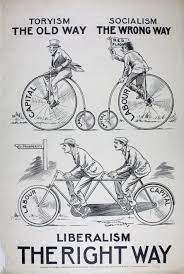
Liberalism is capitalist realism, and anti-communist. It's anti-democracy as well, so long as you define democracy as doing what the people want (That's clearly an impossible way to ride a bike!). Capitalism/liberalism calls itself democracy, but is really just profit seeking. Sometimes the highest expected profits come from doing what people want, just as often it comes from creating toll booths between people and readily available resources so you can extract a profit (enclosure).
Liberalism is the political system of capitalism. Its beliefs are: Free markets and competition, protection of property rights and opening new markets.
Nothing else in liberalism is inherently left or right wing. The political system of America during slavery was liberalism. America during segregation was liberalism. Abortion has been rolled backwards under liberalism. The Japanese far right inheritor of the fascists party is called the liberal party.
You have been confused and politically mis-educated about what liberalism is by the american landscape of culture war politics.
Liberalism is an economic political ideology, like socialism, socialism holds nearly polar opposite economic political beliefs to it.
Looking it up, the definition of liberalism specifies a belief in maximum personal freedom, especially as guaranteed by a government.
Personal freedom FOR WHOM ?
If you are a worker you have no freedom. You are forced to work, trapped in a system where if you do not work you go homeless and die. You are barely different to a slave, the chains are just more abstract now and you get to swap who your owner is every now and then.
The personal freedom liberals want is for the people that hold property, not for the workers. It is the belief in the freedom of capital to exploit and do whatever it wants. Liberal "freedom" is not personal freedom it is the financial freedom of the ruling class to utilise their capital to exploit the workers to maximum effect.
I, for example, consider myself a liberal, but I'm most certainly not a capitalist.
Stop calling yourself a liberal then and start immersing yourself in socialist spaces where you'll actually learn what alternatives exist to capitalism.
my rights are guaranteed by our constitution.

The state will leave you alone as long as you are not a threat to it. The very moment you pose any sort of threat to it your rights vanish. The US has a history of murdering socialists, Assange is certainly not being given any rights, the cop city protestors are certainly not being given any rights, in fact wasn't one summarily executed not long ago? Self described liberals are entirely oblivious.
Lot of good answers, I just wanna do my usual and show my love for when fedusers come and ask questions from a place of genuineness and goodwill.

From the sounds of it, we agree on most fundamental ideas (capitalism sucks, rights should be guaranteed). The only two cents I'd offer are that you should think about why your government (and also every corporation) is incentivised to enrich themselves at your expense, and then try to envision a way to restructure society so that isn't such a strong incentive. This was how I took my first step from "Capitalism sucks but I don't know if socialism is any better" to "Maybe the commies were right all along"
I, too, would like to second an appreciation for people coming here and asking questions in good faith. It's very polite and nice. Thanks, OP.
Leftist ideology isn't some secret club with masonic passwords and shit. Most people here are quite happy to discuss our beliefs. Sometimes it can be a bit tiresome because we answer the same questions all the time, hence the reflexive hostility when people come here to talk trash or behave in bad faith. Please understand why this happens. So it is very nice when people ask genuine questions that we can help answer. Even if you choose to disagree you will do so with a more complete understanding of what we believe instead of a cold war caricature, and that's a good thing!
Here is a previous response to this question, I feel like a lot of socialists come off as having changed the definition of "liberal" when actually it was the capitalists who changed it.
One important distinction is, there is no separation between the social and the economic: Economics are a social relation. False distinctions like this are an example of the sort of thinking that we often criticize.
Liberals emerged as the opposition to the feudal system, along with enlightenment philosophy, science, industrialization, etc. Revolutionary liberals wanted freedom, democracy, self determination, independence, freedom of movement, and a world without the tyranny of a king. The class that emerged during these periods was the capitalists who also wanted to get away from the feudal system ruled by nobles and the church, who said, "the way to get rid of these feudal relations and get freedom, democracy and independence is a system built around private property rights." But of course once the capitalists seized power and owned everything, those other values of self determination, freedom, independence all became wrapped up in and subordinated to private property.
Now when people talk about these values, the only one that really has any social substance is property. Socialists are in many ways the inheritors of that first mission that early radical liberals were fighting for, but when we talk about liberals, what we mean is anyone who believes that private property is a core political and social value to uphold. This includes most conservatives and what would traditionally be considered as liberals, like the Democratic party. But we recognize that private property and capitalism was not the way to win freedom from tyranny, it was just a new form of tyranny. It was a big con, a game of switcheroo, and it continues to be that to this day. Liberals can't really see it because there are things that they believe to be essential and natural that are really social and historically contingent. But becoming a socialist we have to sort of de-liberalize in that we purge those core beliefs that uphold private property and dictatorship of capitalists, which has this weird side effect of always having to distinguish our socialist beliefs from liberalism.
From what I have seen of the world, that sounds like an archaic definition of liberal and is not how it is commonly defined (in the US at least).
But I think some of that is semantic gatekeeping. In the US things are often cast as more liberal or more conservative but this serves to contain acceptable political ideas inside a relatively narrow window. If socialists are just "more liberal" than democratic politicians then the distinction between them (namely that socialists are ideologically opposed to the goals of DNC politicians) then their actual opposition us hidden behind a smokescreen, where we just want a stronger version of what they claim to want.
It is to their advantage for people to believe these are the available options, the only things people can seriously want for society.
The overwhelmingly majority of liberals do not want to abolish private property or capitalist social relations, and with the near universal lack of political education those ideas don't even enter their heads
So the definition can't be archaic because it accurately describes the vast majority of liberals alive today
Is using gnarly to mean twisted, knotted and rough is an archaic use of the word? Is using the word cool to describe temperature archaic? The issue is that the politically illiterate first worlders have no clue what the real meaning of the word is and think the slang use is the only meaning. Western political slang has twisted the meaning of the word "Liberal" to mean "socially progressive" but that in no way dismisses the actual meaning of the word.
These gentlemen think that when they have changed the names of things they have changed the things themselves. This is how these profound thinkers mock at the whole world.
- Frederick Engels




